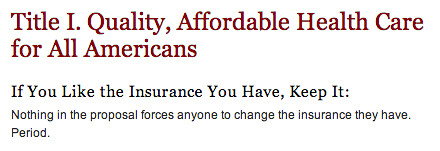The president’s 24-minute sit-down with NBC’s Chuck Todd was meant to close a chapter of the Obamacare Crisis. You didn’t think the man with whom the Buck Stops was angry and regretful about cancelled individual insurance plans? He is! “We weren’t as clear as we needed to be in terms of the changes that were taking place,” said the president. “And I want to do everything we can to make sure that people are finding themselves in a good position—a better position than they were before this law happened.”
It took some coaxing for Todd to get the president to an apology. (He was totally unsuccessful at getting the president to back a specific legislative response to the canceled plans.)
“I am sorry that they—you know, are finding themselves in this situation, based on assurances they got from me,” said the president. “We’ve got to work hard to make sure that they know we hear ‘em and that we’re going to do everything we can, to deal with folks who find themselves in a tough position as a consequence of this.”
Instead of a policy response, we get pain-feeling. It’s what the punditocracy demanded, especially after noticing how the “mainstream” commentators of late-night comedy were unanimous in their mockery of the president. How fast was the pivot? So fast that the White House’s health care page does not yet reflect it.
 So they’re going to need some surgery on the long tail. For a very long time, the White House’s uncontested argument was that changes to grandfathered plans that led to the loss of those plans would not be the goverment’s doing. “When I say if you have your plan and you like it, or you have a doctor and you like your doctor, that you don’t have to change plans, what I’m saying is the government is not going to make you change plans under health reform,” said the president in August 2009. Meaning: It would be the provider, not the government, that responded to new regulations by ending the plan.
This never made a ton of sense—if the insurer is responding to a government regulation, how is the government blameless?—but the argument was that such cancellations might happen anyway if the Affordable Care Act wasn’t passed. It was tenable until the media decided it wasn’t. So the administration, having delivered the apology, is going to try to reframe what’s actually going to happen to those people currently angry at the cancellations. They would have been worse off if they’d kept them! They haven’t considered their subsidies! And so on.
So they’re going to need some surgery on the long tail. For a very long time, the White House’s uncontested argument was that changes to grandfathered plans that led to the loss of those plans would not be the goverment’s doing. “When I say if you have your plan and you like it, or you have a doctor and you like your doctor, that you don’t have to change plans, what I’m saying is the government is not going to make you change plans under health reform,” said the president in August 2009. Meaning: It would be the provider, not the government, that responded to new regulations by ending the plan.
This never made a ton of sense—if the insurer is responding to a government regulation, how is the government blameless?—but the argument was that such cancellations might happen anyway if the Affordable Care Act wasn’t passed. It was tenable until the media decided it wasn’t. So the administration, having delivered the apology, is going to try to reframe what’s actually going to happen to those people currently angry at the cancellations. They would have been worse off if they’d kept them! They haven’t considered their subsidies! And so on.
The White House’s Website Still Says If You Like Your Plan You Can Keep It
Advertisement